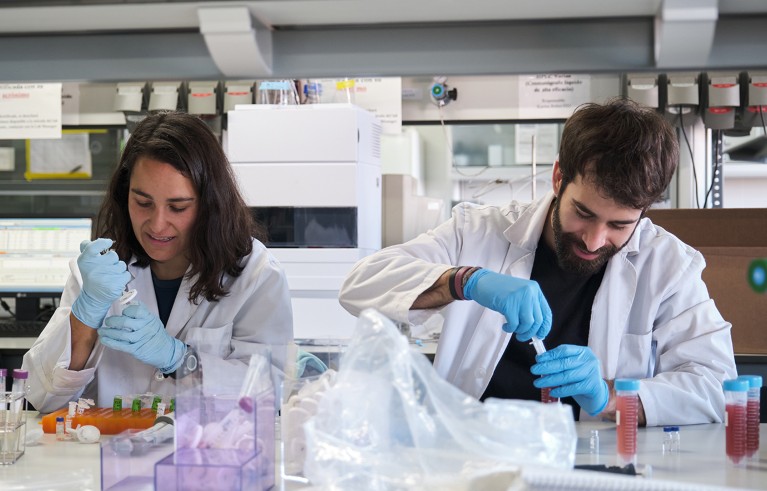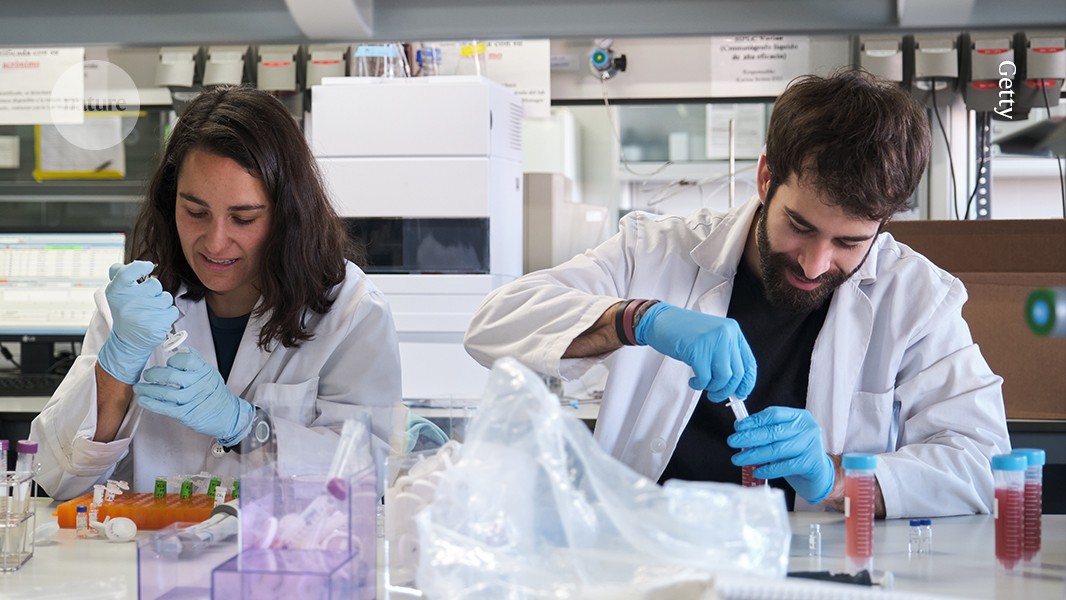
Many students who responded to Nature’s 2025 global PhD survey were enjoying their doctoral degree and felt fulfilled by their work.Credit: Getty
What factors contribute the most to PhD satisfaction? Stipends that are more than just a living wage? Manageable, if not predictable, hours? A collegial and mutually supportive team? These all matter, and are often in short supply. Another factor, which is often overlooked, is supportive supervision.
The message that supervisors who make a conscious effort to support and mentor their PhD candidates have more-satisfied students comes from Nature’s 2025 global survey of more than 3,700 doctoral students. About half of the respondents, who self-reported their experiences, said that their supervisors spent less than one hour a week with them. Some 69% of respondents in this group reported being at least moderately satisfied with their PhD compared with around 82% of those who met with their supervisors more often.
These results chime with studies showing how PhD student well-being is connected to their supervision (L. Tikkanen et al. High. Educ. https://doi.org/p9zq; 2024). And they indicate that people responsible for running research systems in some countries represented by the survey responses are missing an opportunity.
In the United Kingdom and Germany, for example, 61% and 60% of respondents, respectively, see their supervisors for less than one hour a week. By contrast, in India, 60% spent at least one hour a week with their supervisor. Some of the most satisfied respondents of this year’s survey studied in Brazil (83%) and Australia (82%), where nearly half of students were extremely happy with their overall relationship with their supervisor, compared with 36% of students globally. Doctoral students in both of these countries described relationships marked by openness and mutual respect, and supervisors were seen as collaborators rather than distant evaluators.
Mutually beneficial relationships
The student experiences in Brazil and Australia show how extra attention can lift both morale and performance. Not losing promising researchers to burnout and disillusionment should be sufficient incentive for supervisors to adopt a more hands-on approach. And supervisors can benefit, too. A 2019 report from the US National Academies of Sciences, Engineering, and Medicine report on mentorship in science notes that researchers who invest time in their students tend to lead more-productive, more-collaborative groups and attract stronger future students than those who do not. Other studies, notably a 2022 review on the quality of academic mentoring, describe how supervisors who engage closely with their students can benefit by learning new techniques and discovering emerging fields, and say that they often feel intellectually recharged (S. E. M. Hill et al. J. Clin. Psychol. Med. Settings 29, 557–569; 2022).
Major concerns
Nature’s survey also brings into sharp focus a related, but altogether darker, side of supervision: bullying and harassment. About 43% of respondents had experienced some form of discrimination or harassment, most commonly bullying or general mistreatment. Worryingly, in around four out of ten bullying cases, a student reported bullying by their supervisor. Only 28% of these respondents felt able to report such behaviour without fear of reprisal.
Universities can go further by treating supervisory time as a matter of accountability. Institutions also need to train group leaders on how to be a good supervisor and reward effective supervision. Awards are one tried and tested method that we at Nature wholeheartedly endorse. Our Nature Award for Mentoring in Science is now in its 20th year. The shortlist has just been published and the 2025 winners will be announced in December (see go.nature.com/4o6mvsm).
Well-established researchers sometimes say that they built successful careers with limited attention from their supervisors, and note that if they could do this, the present generation should be able to do the same. But research today is highly interdisciplinary and often involves teamwork. Moreover, job security for early-career scientists is often precarious. Some 41% of survey respondents cite pressure to get published as a key concern, and only around half feel satisfied with the career guidance that they receive. These are all reasons why more support is needed.
Given the relationship between good supervision and student well-being and achievement, it’s no surprise that when respondents were asked what advice they would give to someone considering a PhD, the most common response (20%) was to find the right supervisor or mentor (see Nature 646, 501–502; 2025). “Try to make sure your supervisor is someone you like and get on with, both professionally and, to some extent, personally,” one participant said.
Group leaders might feel that modern academic life leaves little space for long conversations. But even short, regular check-ins can make a difference. Time spent helping students to solve problems, or simply asking how a project is going, will pay dividends. It also saves time later by catching small problems before they become big ones.
Along with subject knowledge, good supervision requires curiosity, empathy and reliability — being there for a student when needed. These are some of the qualities that make for good research, too. Time spent with the next generation of scientists is an investment. In a climate in which research teams depend on highly trained staff members, who often have short-term contracts, the returns can be considerable.


